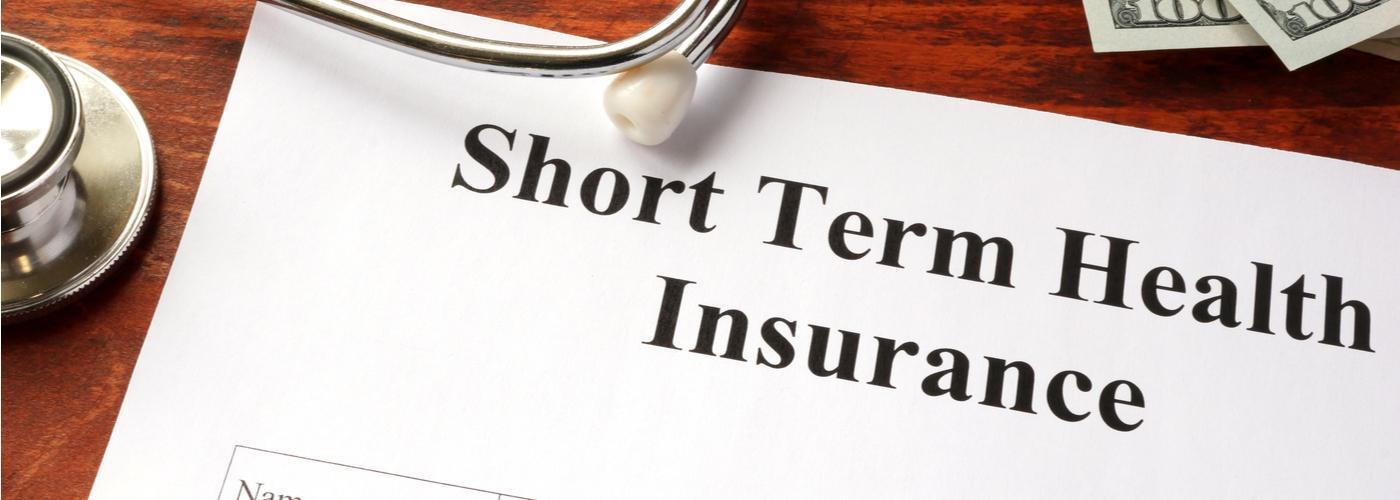According to the US Census Bureau, 27.5 million Americans had no health insurance in 2018¹. Part of the reason for this is that private health insurance can be expensive. Luckily, for those who can’t afford private health insurance, missed the enrollment period, or don’t qualify for subsidies, turning to short-term health insurance plans can be a lifesaver. It offers and easy and immediate way to get covered.

We’ve created this article to help you get acquainted with short term health insurance and learn whether it is the best option for you.
90 Days of Coverage with Short-Term Health Insurance
While the major private health insurance plans cover, on an annual basis, general medical visits and expenses, short term plans are a useful but temporary solution. At the moment, you can expect no more than 3 months of coverage. During this time, your short term health insurance will function just like the regular annual health plans. However, once those 90 days pass, the policies expire. Keep in mind that you might be turned down for pre-existing conditions when signing up again.
In some states, short term health insurance is renewable. Keep this in mind before you sign up and check your state’s local laws to see if this might be a possibility. If so, you can then ask your insurer whether they will allow you to renew. In some cases, you can keep renewing your short term health insurance for up to 3 years².
Short-Term Health Insurance Can Save You Money
Among the most significant advantages of these short health plans is that they’re usually cheaper. Since most of them are used between two regular policies, they don’t offer comprehensive coverage, but that ends up saving you money.
According to NPR, short-term plans can cost as little as $124 per month, while a typical health insurance policy costs almost $400³. If you don’t have any severe health conditions, you can save even more. CBS News reports that middle-aged nonsmokers, for example, can expect to pay $481 per month through the Affordable Care Act, while a short-term policy can cost only $160⁴.
Higher Deductibles Can Make Out-Of-Pocket Payments Larger
Your deductible or the money you need to pay before a health insurance policy starts covering costs will be higher with a short-term plan. Some plans can make you pay deductibles as high as $6,500, according to Consumer Reports⁵. Besides that, some procedures aren’t covered.
You Can Cover Gaps with Short-Term Health Insurance
Despite the downsides, short-term health insurance is still a sensible choice for people who want to cover gaps between regular health plans. What’s more, it’s better to have at least some sort of coverage instead of no coverage for common issues and illnesses.
Here’s when a short-term plan makes sense:
- You’re waiting for new coverage to start
- You’re in between jobs
- You’re uninsured, and you didn’t enroll in Medicare
- You’re waiting for Medicare to accept you
You Get Limited Coverage with Short-Term Health Insurance
Coverage is where short-term health insurance policies fall short. Your plan could have a limit on the number of doctors you visit or the number of prescription, as well as how many dollars you can spend per week or month. It’s essential to read the fine print.
Here’s a list of exclusions that you’re bound to face with short-term policies:
- Choosing an in-network doctor might be required
- Insurance companies can deny you if you have pre-existing conditions
- Some policies exclude sports injuries, hernias, cataracts, and injuries from intoxication
- You might not be covered for preventative care and immunization
Research Your Options Before Committing to a Health Insurance Plan
Short-term health insurance can be a great solution for many people who do not meet the criteria for Obamacare or Medicare, or for whom private insurance is too expensive. It is also a great alternative for those who missed the Open Enrollment period. However, before deciding on a plan, you need to do research. The easiest way is by going online, comparing offers, and reading up on the pros and cons.
[1] Edward R. Berchick, Jessica C. Barnett, and Rachel D. Upton. “Health Insurance Coverage in the United States: 2018.” United States Census Bureau, 8 November 2019. https://www.census.gov/library/publications/2019/demo/p60-267.html
[2] Louise Norris. “Is Short-Term Health Insurance Right for You?” healthinsurance.org. 14 January 2020. https://www.healthinsurance.org/short-term-health-insurance/
[3] Alison Kodjak. “Under New Rules, Cheaper ‘Short Term’ Health Care Plans Now Last Up to 3 Years.” NPR. 1 August 2018. https://www.npr.org/sections/health-shots/2018/08/01/634539877/under-new-rules-cheaper-short-term-health-care-plans-now-last-up-to-three-years
[4] Walecia Konrad. “Short-term health insurance plans: What you need to know.” CBS News. 3 August 2018. https://www.cbsnews.com/news/short-term-health-insurance-plans-alternatives-to-obamacare-aca/
[5] Nancy Metcalf. “Is ‘Short-Term’ Health Insurance a Good Deal?” Consumer Reports. 22 December 2017. https://www.consumerreports.org/health-insurance/is-short-term-health-insurance-a-good-deal/


